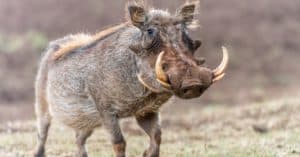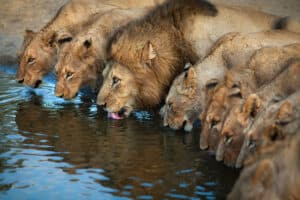We all know that there are many similarities when it comes to a wolf vs dog, but have you ever stopped to consider the differences between them? After all, wolves and dogs are members of the same family and have the same species classification. They are both members of the canis lupus family, and have over 90% of the same DNA. However, they are very different in a variety of other ways.
In this article, we will address all of these primary differences, including how a wolf and dog differ in both their behavior and dietary needs. We will also address the physical differences between these two animals, as they differ greatly. Let’s dive in and learn more about both of these beautiful creatures now.
Comparing Wolf vs Dog
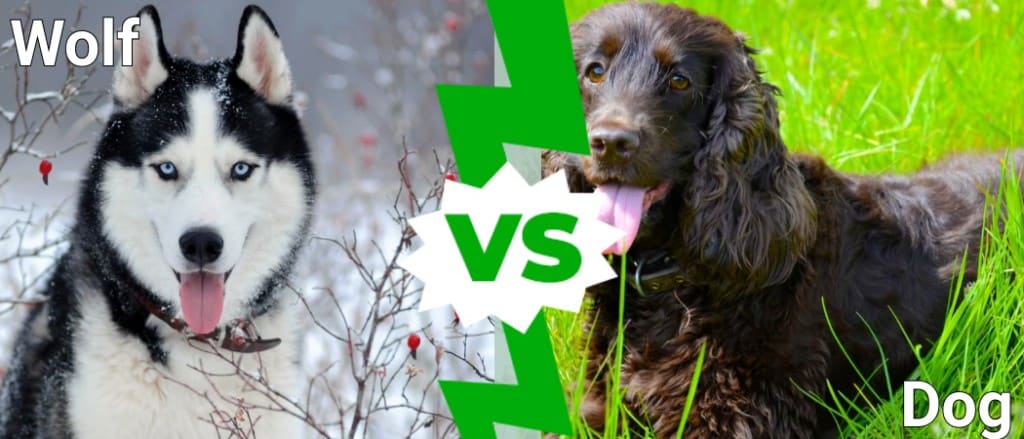
| Wolf | Dog | |
|---|---|---|
| Domesticated? | No | Yes |
| Appearance | Pointed ears, large skull, strong jaws and teeth | Floppy or pointed ears, rounded head and body |
| Maturity Rate | Faster than dogs | Slower than wolves |
| Classification | Canis lupus | Canis lupus |
| Behavior | Play only when young, shy toward humans | Enjoys the company of humans, plays throughout lifetime |
The Main Differences Between Wolf vs Dog
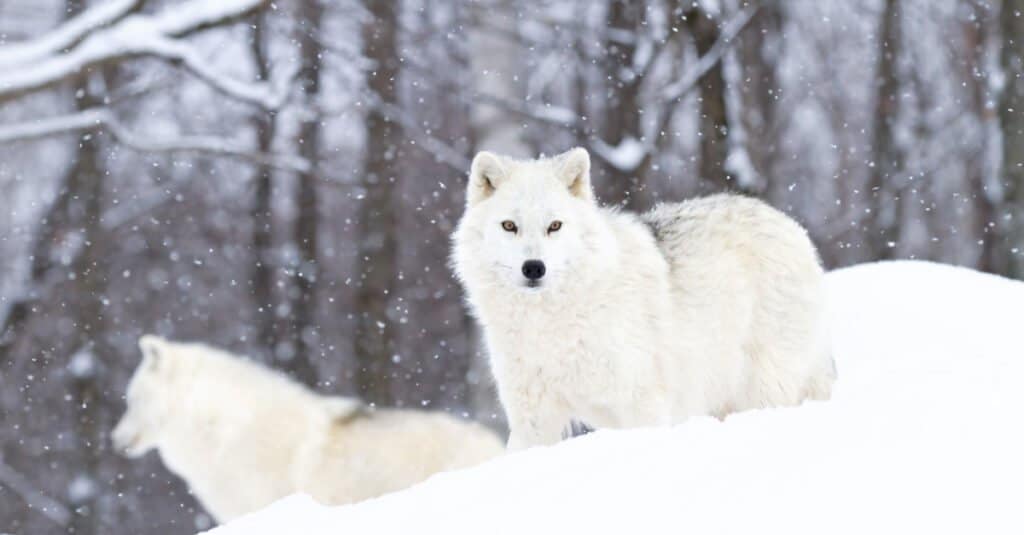
Wolves are wild animals, while dogs have been domesticated.
©Jim Cumming/Shutterstock.com
The primary difference between a wolf vs. dog lies in their domesticated status. Wolves are wild animals that are generally shy around human beings, while dogs are friendly and interested in living with human beings. Dogs have been bred for domesticated lifestyles, and this has directly affected their overall appearance, especially when compared to wolves.
Let’s discuss these differences in more detail now!
Wolf vs Dog: Domesticated Status
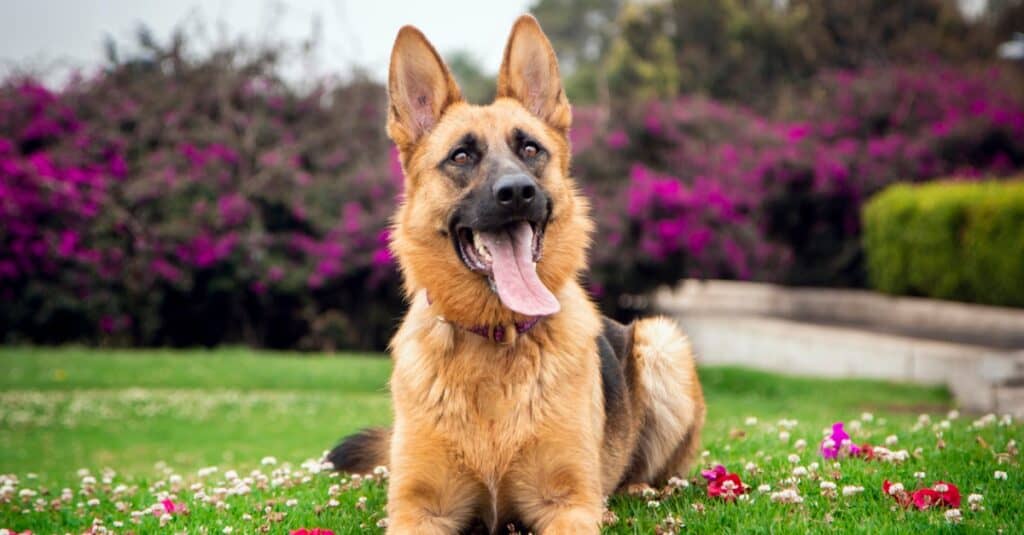
Wolves are not meant to be kept as pets, while dogs are known as man’s best friend.
©iStock.com/VictorRicoFoto
Wolves are not meant to be kept as pets, while dogs are known as man’s best friend. While this process took centuries of breeding, mankind managed to create dogs from the same genetic makeup as wolves, without the wild animal behavior.
This is not to say that wolves are particularly aggressive toward humankind, as most wolves are shy and prefer to be left alone. However, many people wrongfully assume that they can keep wolves as pets, or that taking care of a wolf hybrid is something that is possible. It is important that people choose to adopt dogs rather than wolves.
Wolf vs Dog: Appearance
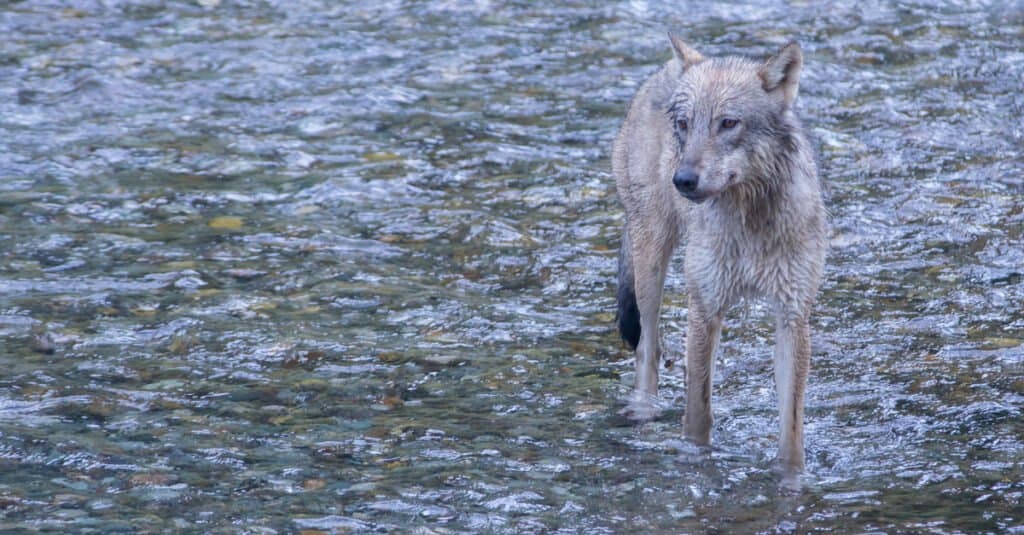
Wolves are naturally more athletic looking than dogs.
©iStock.com/Jillian Cooper
Another key difference between wolf versus dog is their appearance. Wolves are naturally more athletic looking than dogs, and often reach much larger sizes. Dogs have larger eyes and rounded heads, while wolves maintain larger skulls and longer noses or muzzles.
Depending on the breed of dog, wolves and dogs can look strikingly similar in terms of their coloring and overall build. However, wolves have larger teeth and many have bushier tails when compared to the average house dog. A dog’s paws will also often be much smaller than a wolf’s.
Wolf vs Dog: Diet
Wolves and dogs eat very different diets, which is because of their domesticated and wild statuses. Domesticated dogs are used to humans feeding them, while wolves have to fend for themselves. Given their wild status, wolves are known as strictly carnivores, capable of eating a large amount of raw meat. This is not something that domesticated dogs can do.
Wolves need a much larger amount of protein when compared to the average diet of a dog. This is because we have bred dogs to be fed by humankind, while wolves feed themselves using whatever is naturally found in their environment. Dogs and wolves cannot be fed the same diet, especially when you consider just how much a wolf can eat!
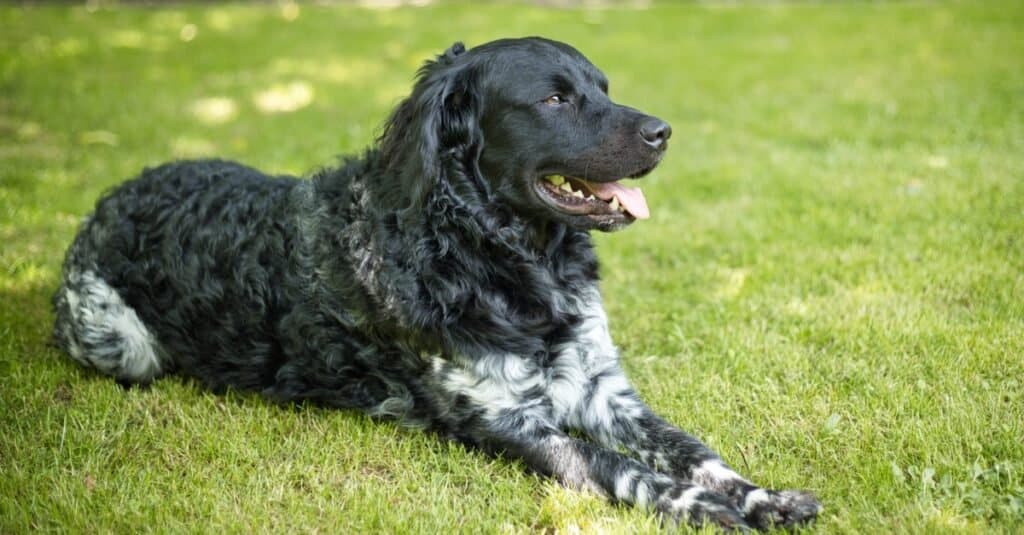
Wolves need a much larger amount of protein when compared to the average diet of a dog.
©Tales by Pictures/Shutterstock.com
Wolf vs Dog: Maturity Rate and Life Cycle
Another key difference between wolves and dogs is their maturity rate and overall life cycle. While both wolves and dogs are fully weaned from their mothers at roughly 7 to 9 weeks of age, wolves tend to mature much faster. This is likely due to the fact that they need to gain proper survival instincts in order to thrive in the wild, while dogs do not have the same problems.
However, it is interesting to note that most wolves reach sexual maturity much later in life than dogs do. The average wolf is sexually mature at roughly two years of age, while most dogs reach this point within six to nine months of their life. Additionally, even when wolves reach sexual maturity, they often choose not to breed for many years after.
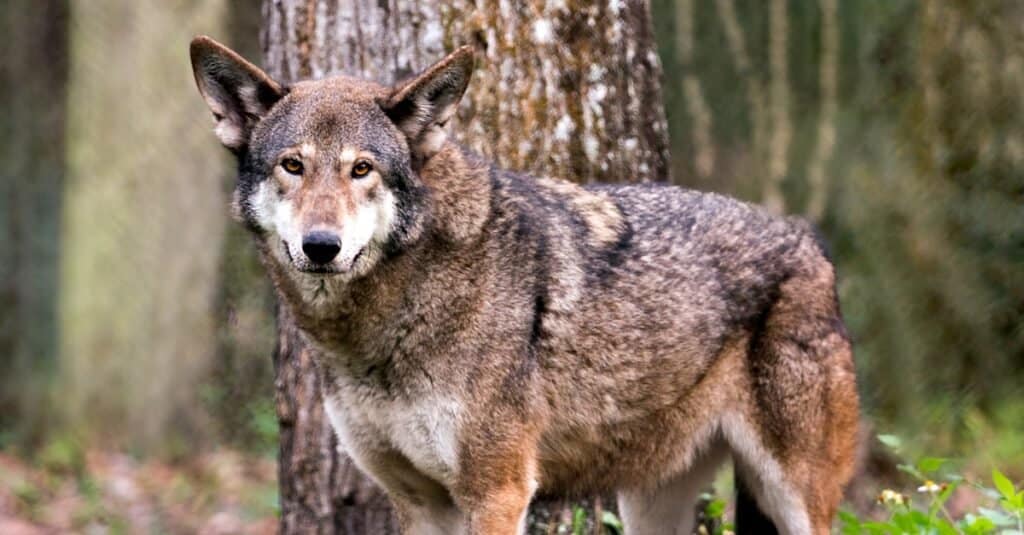
Wolves and dogs are fully weaned from their mothers at roughly 7 to 9 weeks of age.
©Rejean Bedard/Shutterstock.com
Wolf vs Dog: Behavior
A final key difference between wolves and dogs lies in their overall behavior. Wolves are generally considered shy pack animals, thriving among other wolves but choosing to avoid humankind whenever possible. Dogs are quite the opposite, as they have been bred for companionship and rely on humans for their food and affection.
Even wolves or wolf hybrids that have been raised among humans tend to shift in their behavior once they reach sexual maturity, while dogs remain more constant in their behavior with humans. However, wolves socialize frequently in their pack, playing and socializing in their pack structure.
Many wolves tend to play last as they get older, especially when compared to domesticated dogs. However, this does not mean that wolves are not inherently playful creatures. They simply have a lot more to deal with than the average domesticated dog, and survival instincts often take precedence over playtime.
The photo featured at the top of this post is © nataliatamkovich/Shutterstock.com
Thank you for reading! Have some feedback for us? Contact the AZ Animals editorial team.




